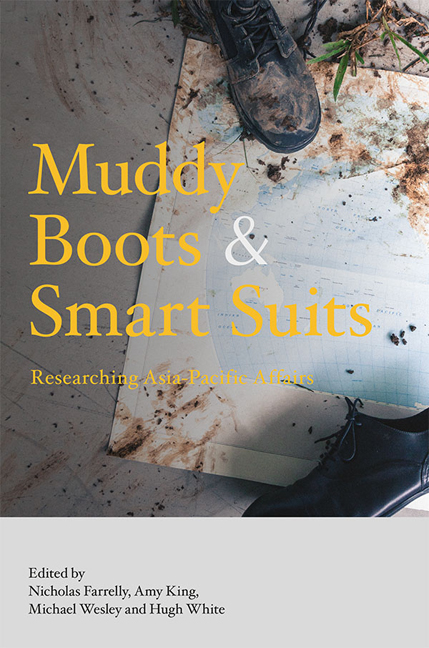Book contents
- Frontmatter
- Contents
- About the Contributors
- 1 Introduction to Research in Asia-Pacific Affairs
- Section I In the Field
- Section II Analysing Politics
- Section III Shaping a Region
- Section IV Conflict and Order
- 9 War and Order: Thinking about Military Force in International Affairs
- 10 Power, Prestige, and Order
- 11 Strategic Culture in the Asia-Pacific: Putting Policy in Context
- Section V Policy and Practice
- Bibliography
- Index
11 - Strategic Culture in the Asia-Pacific: Putting Policy in Context
from Section IV - Conflict and Order
Published online by Cambridge University Press: 12 January 2018
- Frontmatter
- Contents
- About the Contributors
- 1 Introduction to Research in Asia-Pacific Affairs
- Section I In the Field
- Section II Analysing Politics
- Section III Shaping a Region
- Section IV Conflict and Order
- 9 War and Order: Thinking about Military Force in International Affairs
- 10 Power, Prestige, and Order
- 11 Strategic Culture in the Asia-Pacific: Putting Policy in Context
- Section V Policy and Practice
- Bibliography
- Index
Summary
One of the most well-used quotes from Sun Tzu states that “if you know the enemy and know yourself, you need not fear the result of a hundred battles. If you know yourself but not the enemy, for every victory gained you will also suffer a defeat.” Thucydides — who like Sun Tzu is a member of the “classical cannon” of strategic studies from the fifth century BCE — argued, in a not too dissimilar vein, that scrutinizing the political and cultural differences of the ancient Greek city states was critical in understanding their motivations and behaviour during the Peloponnesian War. For both writers, appreciating the strategic culture of the protagonists is essential to understanding war, and crucial in the formulation of strategy.
Shifting forward a mere 2,300 years to the 1960s in Southeast Asia, the concept of understanding thy enemy and knowing thyself had not changed. A lack of understanding of the region, and especially its culture and political make-up, was to prove fatal to the efforts of the United States to prop up successive South Vietnamese governments in the face of a communist led insurgency. Robert McNamara, U.S. Secretary of Defense in the Kennedy and Johnson administrations, noted that in accounting for the U.S. defeat in South Vietnam, one of the key reasons was that “we [the United States] viewed the people and leaders of South Vietnam in terms of our own experience … we totally misjudged the political forces within the country … our misjudgements of friend and foe alike reflected our profound ignorance of the history, culture, and politics of the people in the area, and the personalities and habits of their leaders” (McNamara 1995, p. 322). A decade later, Lawrence Sondhaus applied McNamara's analysis of the failings of U.S. policy in South Vietnam to the miscalculations and misjudgements evident in the U.S. invasion of Iraq: an observation that looks increasingly prophetic (Sondhaus 2006, p. 130).
What these insights from the ancient world and modern times reinforce is the continual failure of neorealist and traditional rationalistmaterialist approaches to explain strategic behaviour. As Rashed Uz Zaman has noted, the need for understanding ourselves, our potential adversaries, our allies, and the world we live in has not changed over time (Uz Zaman 2009, p. 84).
- Type
- Chapter
- Information
- Muddy Boots and Smart SuitsResearching Asia-Pacific Affairs, pp. 156 - 170Publisher: ISEAS–Yusof Ishak InstitutePrint publication year: 2017

